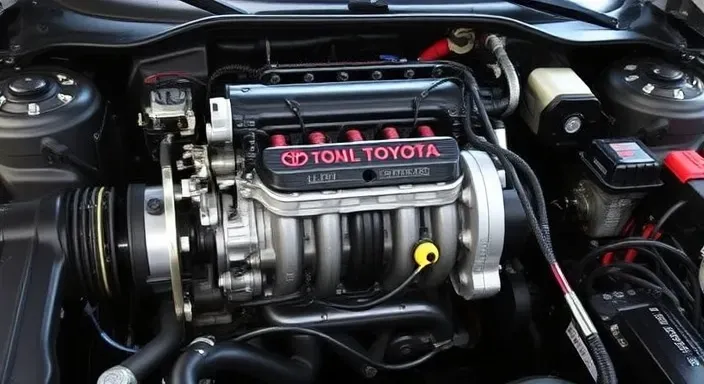Why More Cylinders Mean More Power

The number of cylinders in a car engine is often equated with its power and performance. But why is this the case? What exactly do cylinders do, and how do more cylinders translate into more power? Let's dive into the mechanics of why "more cylinders mean more power" and how this impacts your driving experience.
What Are Engine Cylinders?
An engine cylinder is a core component of an internal combustion engine. It houses the pistons, which move up and down as fuel combusts, converting energy into motion. This energy powers the vehicle, turning the crankshaft and driving the wheels.
The number of cylinders in an engine directly influences its performance capabilities. Common engine configurations include:
4-cylinder engines: Found in compact cars and fuel-efficient vehicles. 6-cylinder engines (V6): A balanced choice for midsize SUVs and performance sedans. 8-cylinder engines (V8): Known for their high power output, commonly used in trucks and sports cars. 12-cylinder engines (V12): Reserved for luxury and high-performance vehicles.
Why More Cylinders Mean More Power
1. Increased Combustion Events
Each cylinder contributes to the overall power output of an engine by performing four key strokes: intake, compression, combustion, and exhaust. With more cylinders, more combustion events occur per engine cycle, resulting in a higher power output.
2. Smoother Power Delivery
Engines with more cylinders distribute the workload across a greater number of pistons. This leads to smoother and more consistent power delivery, making the driving experience more refined.
3. Higher Displacement
More cylinders typically mean a larger engine displacement (the total volume of all cylinders). A larger displacement allows for more air and fuel to combust, producing greater energy.
4. Better Performance at High Speeds
Engines with more cylinders excel at maintaining power at high speeds. This makes them ideal for applications where consistent performance is needed, such as towing heavy loads or racing.
Drawbacks of More Cylinders
Higher Fuel Consumption: Larger engines require more fuel, reducing efficiency. Increased Weight: Additional cylinders add weight to the vehicle, potentially affecting handling. Higher Costs: Vehicles with more cylinders are generally more expensive to purchase and maintain.
The Future of Cylinders: Balancing Power and Efficiency
Modern advancements in turbocharging and hybrid technology are bridging the gap between cylinder count and performance. For example, a 4-cylinder turbocharged engine can now produce power comparable to older V6 engines while maintaining better fuel efficiency.
Conclusion
The number of cylinders in an engine significantly affects its power and performance. While more cylinders generally mean more power, the decision should align with your specific needs and preferences. Whether you're navigating city streets in a compact car or conquering off-road trails in a V8 powerhouse, understanding the role of cylinders helps you make an informed choice.
For a thrilling driving experience, consider your power needs—and let the cylinders do the talking. Visit us today to explore our diverse lineup of vehicles, featuring various engine configurations to suit your preferences and budget.
Last Updated : December 20, 2024


